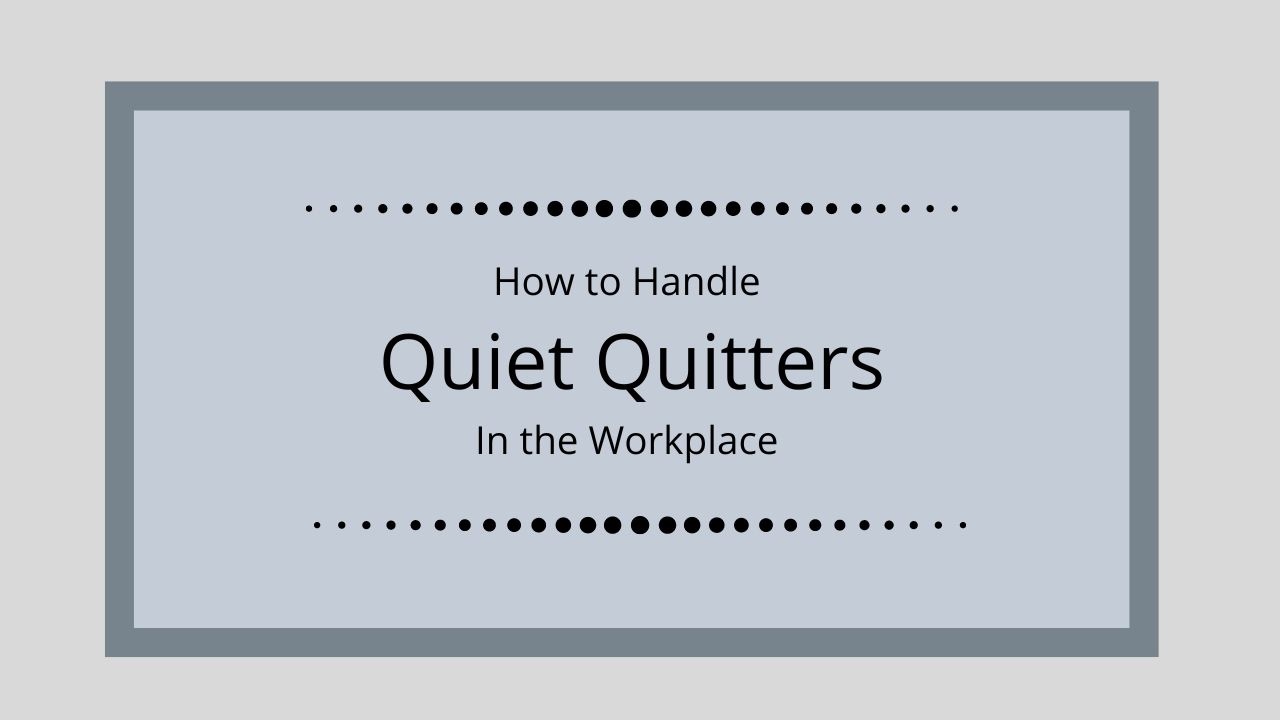How to Handle Quiet Quitters in the Workplace
Aug 22, 2022
“Quiet quitting” is not a new thing. Employees are simply becoming aware that more work for the same pay might not be in line with their long term goals.
Quiet quitting is the idea that employees have checked out, won’t go above and beyond and are only doing the bare minimum in exchange for their paycheck. Employers have cautioned this will reduce the employee’s marketability and options for promotions within the company.
In reality, employees are simply asking to be properly compensated for the value they are providing and not take on additional unpaid tasks. More employees are conducting a cost-benefit analysis to determine if the additional work and resulting stress, which is over and above their original agreed to tasks, is truly worth the sacrifice to themselves, their free time and their family.
Employees are asking, “if you want me to work through lunch, scramble to find solutions, come in on the weekends, an stay late” what’s in it for me? This question does not suggest they aren’t a team player, or not serious about growth within the company, but rather are making a business decision as to whether the “cost” of taking on the atonal work (more stress, missing family gatherings and vacations, etc) is worth it- especially when it involves more job duties without an increase in compensation or benefits.
Once an employee has its established job duties and agrees to a salary in exchange for those duties, asking the employee to do more work without additional pay is similar to asking the employee to take on more tasks for free.
Many employers may not be used to this type of pushback, but in order to retain top talent, employers should be prepared for this to become more of the norm.
In order to retain your employees, companies should engage in employee retention efforts. Start by conducting a survey to see the potential issues that may cause employees to be a quiet quitter. Once the issues are identified, come up with potential solutions. If workload is an issue, discuss possible options for decreasing the workload (i.e.: more efficient systems, procedures, hiring additional team members). If a toxic manager is the issue, discuss employee coaching with the manager to encourage more appropriate workplace behavior.
Most problems can be resolved with proper communication. If there is an issue- address it. Don’t do nothing, let it fester, and wonder why employees are leaving the company.
Have you experienced quiet quitters? What’s your take on this?
Connect with Karly Wannos
Follow: Follow Karly on Facebook, Instagram and Linkedin
Join: Join our Private Facebook Community for HR and Businesses
Newsletter: Sign up for my Newsletter on employment law and management topics here.
ONLINE COURSES FOR HR, MANAGERS AND BUSINESSES
Mastering Employment Law Concepts: Learn More Here.
ADA: The Complete Course: learn everything you need to know about the Americans with Disabilities Act, to ensure you comply with the law! Check it out here.
Sexual Harassment Course for Managers. More Info Here.
FREE DOWNLOADS
Step-By-Step Guide to Investigating a Sexual Harassment Complaint: Download here.
The Employer's Termination Checklist: A Guide to Terminating an At Will Employee and Avoiding Retaliation Claims. Download Here.
For informational purposes only. This information does not constitute an attorney client relationship and is not legal advise. Consult with an employment lawyer in your jurisdiction before making any important business decisions.
Get the Newsletter
Stay Up To Date on employment law, management and leadership!
We do NOT spam, and we do not sell any information.
